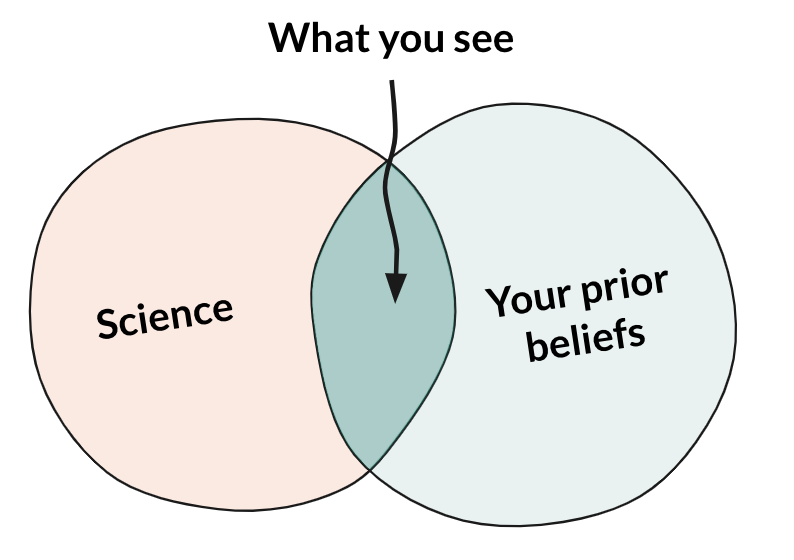What is confirmation bias?

Confirmation bias is a type of cognitive bias that occurs when we favour information that confirms our preexisting beliefs or hypotheses. This bias can lead us to search for, interpret, and remember information in a way that confirms what we already believe to be true while at the same time disregarding or discounting information that contradicts it.
One of the most common ways in which confirmation bias manifests is through selective attention. We are more likely to pay attention to information that supports our beliefs and to overlook or discount information that challenges them. This can result in a distorted view of reality, as we only consider a narrow range of evidence that supports our preconceptions. Confirmation bias is also evident in the way we interpret information.
When we encounter new information, we tend to twist it to fit with our existing beliefs rather than objectively evaluate it on its own merit. This can lead to the creation of elaborate justifications for our beliefs, even in the face of overwhelming evidence to the contrary. Another way in which confirmation bias can manifest is through the way we remember information. We are more likely to remember information that confirms our beliefs, while at the same time forgetting or distorting information that contradicts them. This can result in a skewed recollection of events and a distorted understanding of the world around us.
There are several ways in which confirmation bias can be addressed and countered:
- One approach is to actively seek out information that challenges our beliefs rather than only searching for information that confirms them. This can help to broaden our perspective and expose us to a more diverse range of viewpoints. It can also be helpful to seek out multiple sources of information and to consider a range of evidence before forming an opinion.
- Another approach is to actively try to identify and recognize when confirmation bias is at play. By acknowledging and being aware of this bias, we can work to mitigate its effects and approach new information with a more open and critical mind.
Overall, confirmation bias is a common and often unconscious cognitive bias that can have a significant impact on our perceptions and understanding of the world around us. By recognizing and addressing this bias, we can work to overcome it and make more informed decisions.
Author: Pedram Safaeifar
